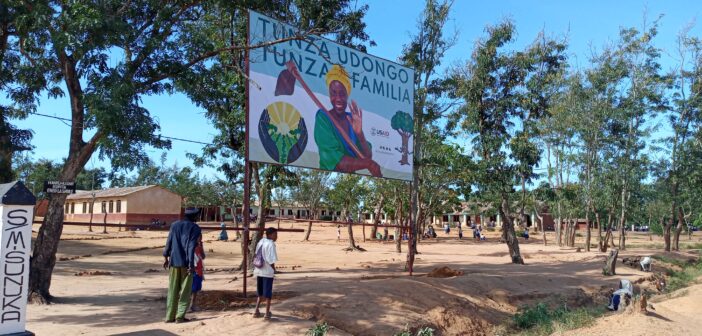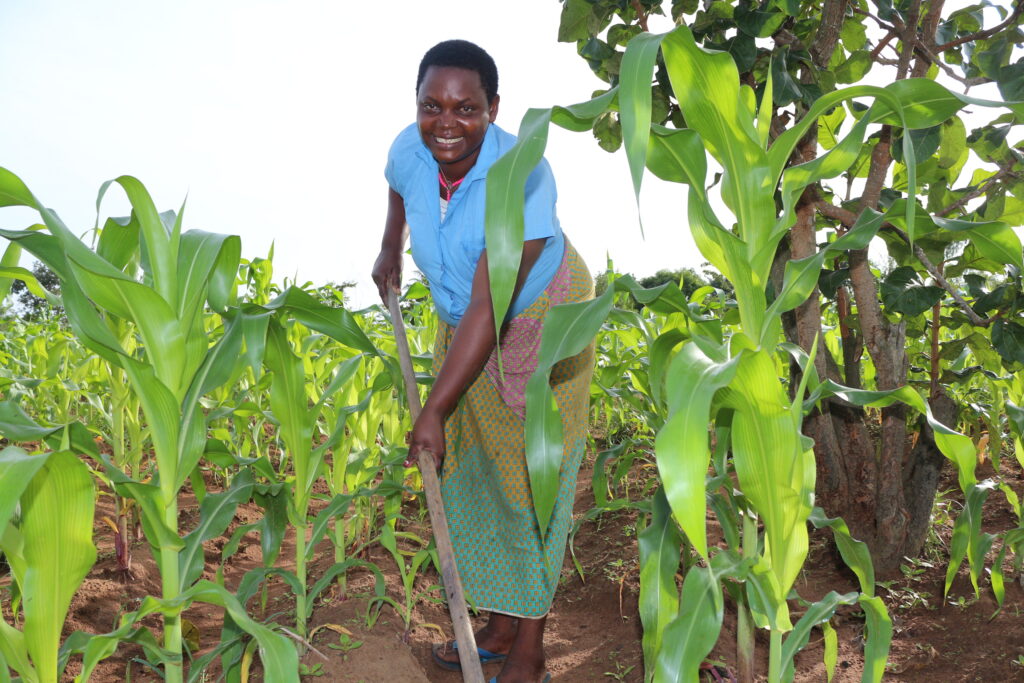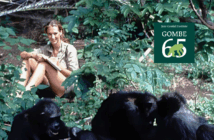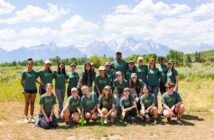Social Science campaign empowers communities through composting and aims to reduce deforestation.
Sophia Moris of Isubangala village in Tanzania began farming at a young age in 1993. Over time, she experienced a loss of soil fertility which led to poor productivity. Struggling economically, she resorted to clearing nearby forests to establish new farmland. Lucy Elias Fidos, also from Isubangala, recalls her involvement in establishing an eight-acre farm in a forest without knowing it would affect rainfall patterns, chimpanzees, and other animals. “All I knew was that distant farming was a solution to soil infertility,” she says.
Today, Sophia and Lucy are part of the solution as lead farmers in JGI’s innovative campaign based on best practices in social science and community co-collaboration to promote composting. The campaign, a Jane Goodall Institute project of Landscape Conservation in Western Tanzania, funded by USAID and developed in partnership with Impact by Design, is designed to address deforestation and challenges facing human communities utilizing JGI’s Tacare community-led conservation approach. Encroachment into forests, propelled scarce fertile small-scale farms, is a driver of threats to human communities, great apes and other wildlife, and deforestation is a primary driver of climate change.
Using state-of-the-art science and Geographic Information Systems (GIS) data, in tandem with surveying community members, local experts, and government officials, JGI identified soil infertility in local farms as a key challenge facing both human and wildlife populations. These small-scale farmers would as a result set up farms in essential riverine habitat, seeking better soil. Surveys created in partnership with Impact by Design also explored socioeconomic information as well as cultural insights to better understand existing challenges and potential opportunities. The resulting solution – composting – was then elevated as the centerpiece of the campaign. Rooted in community-led conservation, the composting campaign provides a better alternative to farmers while supporting forests, wildlife, and humans alike.
In three villages, one key component of the campaign is elevating participating farmers, who set aside a small plot of demonstration farm land that would be used for making compost and learning how to use it. The demonstration plot serves multiple purposes: First, it provides a point of comparison to the rest of the farm where crops are grown without compost (and often with harmful industrial fertilizers). Second, it gives others in the community an opportunity to see first-hand what the positive effects of composting are—and how easy it is to do. The overall campaign utilizes many forms of cultural adoption in combination with model farmers, including visuals, messaging, events, and other forms of social adoption to encourage excitement and participation, removal of barriers including 24,000 kgs of compost samples, as well as relevancy and usefulness to local communities.
The outcomes speak for themselves. Lucy says she could hardly harvest a bag of beans in half an acre before composting. Now, she averages three bags per half-acre. “This is a remarkable achievement for smallholder farmers, thanks to JGI,” she says.
Sophia and Lucy continue to raise awareness and share knowledge through a radio program and by training farmers in neighbouring villages. “JGI training on the composting technology and environmental conservation was a turning point of my life. Now I can adequately provide food for my family and cover education expenses of all my children,” Lucy says. Sophia adds, “Everyone has a role to play to reduce the climate change impact.”








